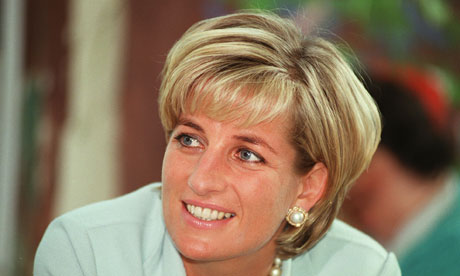
I'm not sure I'm really qualified to review Monica Ali's new novel because I don't know what a French tip manicure is and I'm rather hazy on taffeta. You also feel redundant reviewing some books because their trajectory is so assured. Untold Story is undoubtedly going to sell by the juggernaut-load and will be the catalyst for spirited debate in reading groups and elsewhere.
"What if Princess Diana hadn't died?" starts the blurb on the dustjacket. "Untold Story takes the life of the world's most famous woman as a point of departure." OK. However, we are then informed that the heroine of Monica Ali's "fairy-tale" is a "fictional princess", although the details of her life seem to have a bizarrely identical resemblance to that of Princess Di.
Bringing Di in and then dismissing her is as convincing as asking for someone's telephone number on the grounds that you want to have it to make sure you don't ring it by accident. Why the disavowal? Is it taste? Fear of outraged Di fans? The spectre of some litigation over image rights?
Clever is the word that kept coming to my mind as I read Untold Story. Clever idea, cleverly researched, cleverly done, as you would expect from an Oxford PPE graduate. This Princess Di doesn't die in a Parisian tunnel but survives to fake her own death in a swimming accident. Severing all bonds with her previous life, including her children, she now resides in Kensington – not the one in west London, but a small nowheresville in the US.
From King Arthur onwards, there's been a fascination with the idea of the famous living on in secret, rumours of them adopting a new identity and a different life. I've long cherished the idea of writing a story about Elvis Presley, Pablo Escobar and Saddam Hussein running a dry-cleaning business in Arizona.
Known as Lydia Snaresbrook, the ex-princess leads a fairly contented life, lunching with ladies and volunteering at the local dog shelter. She has an ambivalent relationship with Carson, a straight-shooting American with some sadness in his past who might have wandered in from a Mills and Boon novel (I'm sure Ali is doing a deliberate pastiche here).
This tranquillity is undermined by the stranger coming to town. Completely by chance John Grabowski, one of the most persistent and long-serving paparazzi who dogged her pre-disappearance days, stops off in Kensington. Lydia has of course had some plastic surgery but Grabowski's trained eye catches the unchanged irises and he realises he may have the scoop of the century.
Compared to what Irvine Welsh or Martin Amis would have done with the character of a paparazzo, Ali goes easy on Grabowski. He isn't very likable, but Ali gives him some redeeming features and ironically he seems to be as adrift as the princess in trying to make sense of his life. I wondered if Ali was making him less loathsome to allow for some accommodation with his former quarry, but that's not how the story ends.
This encounter provides the fuel for the main narrative. For Lydia the questions are: has he recognised me? If so what will he do and what do I do? For Grabowski: is it her? If so what do I do?
Monica Ali was on one of Granta's best of young British novelists list, in 2003. The Granta lists are regarded as full of Booker fodder, Jamesian exquisites like Alan Hollinghurst or superbrains like Julian Barnes, but they've always been an eclectic mix. Readers of Untold Story shouldn't expect that category of literary fiction; this isn't a Dostoevskian exploration of the depths of the human soul or an effort to stretch the remit of the novel. But then it isn't striving to do those things; it's what Graham Greene termed an "entertainment".
We don't really get a comprehensive explanation of why Lydia quit her former life or how it feels to be cut off from everything in your past. This is a "what-if" novel chiefly about what's it's like to live looking over your shoulder all the time, almost in Elmore Leonard territory.
As with Ali's acclaimed debut novel, Brick Lane, there is an epistolary section in the middle (where it rather sags), which presumably is meant to give us some insight into the princess's psychology, but for me it doesn't really come off. Similarly there is an attempt to make Lawrence, the private secretary who facilitated her getaway, a major character – this also doesn't really add anything. Untold Story goes to 340 pages, and feels a bit stretched in places. If it had come in at, say, 280, it would have been perfectly streamlined.
Ali's third-person princess, however, is a very convincing and sympathetic figure. One of the things I admire about the British upper classes is that however ridiculous or philistine they may be, they tend to be fighters. The princess has steel and the cat-and-mouse play between Lydia and Grabowski is extremely skillfully done (and who really is the cat?). I can't see this as a feature film, but it would make a great piece for television.
Monica Ali is shaping up to be the Fay Weldon of her generation, producing the publishers' delight, classy commercial fiction – although many male readers like me may find there's a shade too much about dresses and potato salad.

